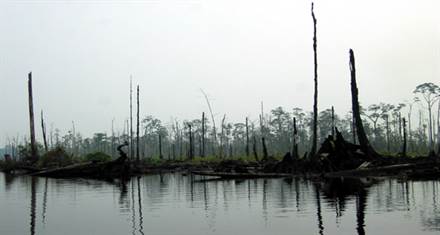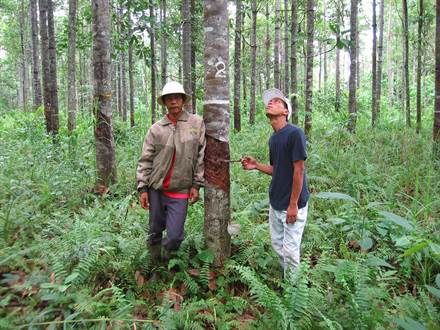
Indonesia announces to protect and rewet its peatlands
-
Peatland conservation and restoration
Wetlands International strongly welcomes the Indonesian government for announcing that Indonesia will ban new developments in its carbon rich peatlands, including ban of land clearing in existing concession areas across the country. Of similar importance is the instruction to rewet drained areas in compliance with the countries’ laws, by blocking drainage canals as this is the only way to reduce ongoing CO2 emissions and make the land less susceptible to fire.
The announcement was stated on the Letter of Instruction (no S.661 /MenLHK-Setjen/Rokum/2015) issued by Ministry of Environment and Forestry to all concession owners in Indonesia. The letter was made in response to the devastating fires and haze that choke large parts of the islands of Sumatra and Borneo and the mega-cities of Kuala Lumpur and Singapore. To turn this plan into reality, it is Wetlands International’s recommendation for Indonesia to develop a National Peatland Conservation and Restoration Strategy, to guide Indonesia in its transition towards peat swamp forest restoration, conservation and sustainable use.
 Indonesia has various peatland regulations, but an overarching strategy is lacking, which is vital for the coordination between ministries and local and regional governments. This strategy should find legal basis in a Government Regulation or Ministerial Decree. A National Peatland Conservation and Restoration Strategy and National Advisory Board for Peatland Management, will help the Indonesian government in the review and streamlining of peat related policies to ensure a coherent and strong regulatory framework that will facilitate sustainable development.
Indonesia has various peatland regulations, but an overarching strategy is lacking, which is vital for the coordination between ministries and local and regional governments. This strategy should find legal basis in a Government Regulation or Ministerial Decree. A National Peatland Conservation and Restoration Strategy and National Advisory Board for Peatland Management, will help the Indonesian government in the review and streamlining of peat related policies to ensure a coherent and strong regulatory framework that will facilitate sustainable development.
Native peat swamp species
Besides the currently announced measures, Wetlands International recommends Indonesia to phase-out drainage-based plantations on these naturally wet ecosystems and shift these where possible to nonforested, non HCV, non HCS and low social conflict mineral soils through land swaps. Currently, the government only announced that burned areas cannot be replanted but this will not protect them from fire, therefore large-scale rewetting is needed.

Wetlands International furthermore promotes an economic development model using the cultivation of commercially attractive native peat swamp species on rewetted peatlands (paludiculture), for example Sago, Tengkawang (Illipe nut), Jelutung (Asian rubber, see picture on the right) and other species used for timber (including pulpwood) and rattan production. Paludiculture is a non-drained from of cultivation in peatlands and is the only economically sustainable land–use of peat areas, as it promotes the long-term development, restores the degraded functions of peatlands and enhances the resilience of local communities against flooding, fires and other calamities.
Paris should kick start global initiatives to safeguard the world’s peatlands
As the world is getting prepared for the climate top in Paris, the problem of drained peatlands can no longer be ignored. Not only for Indonesia, but also for all other countries where peatlands are being lost at an unprecedented rate. Peatlands are the world’s largest carbon stores – they store twice the amount of carbon as the world’s forests. While only 0,3 percent of the world´s peatlands are drained for agriculture, forestry and grazing, this causes 5% of total global human-induced emissions. The mitigation opportunity is huge. It is time that country leaders kick start global initiatives to reduce emissions from peatlands.
